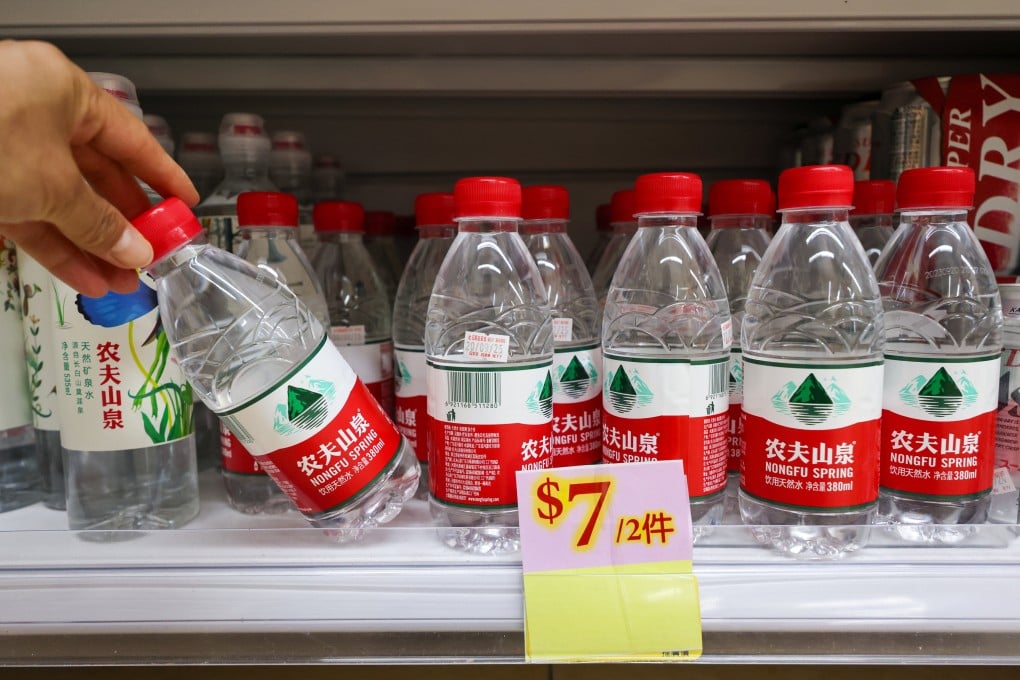Hong Kong Consumer Council says sorry to mainland bottled water giant over ‘inaccurate’ report
- Consumer Council also re-evaluates Nongfu Spring bottled water as five-star product, days after brand slams ‘unscientific’ findings

In a rare move, the Consumer Council released a statement on Thursday clarifying its test results for Nongfu Spring’s bottled water, two days after the brand slammed the watchdog’s findings as “extremely unscientific and irresponsible” and demanded an apology.
The council report on Monday claimed the bottled water contained bromate at the maximum level of European Union quality standards, saying excessive chemical intake could lead to discomfort or even affect consumers’ nervous systems.
The watchdog said it had immediately conducted an in-depth study and follow-up after receiving the company’s legal letter and meeting its representatives.
“We apologise for the misunderstanding caused by the discrepancy in sample categorisation in this test,” the council said.
“We understand that the product is not ‘natural mineral water’ nor ‘purified drinking water’. It is ‘natural drinking water’.”